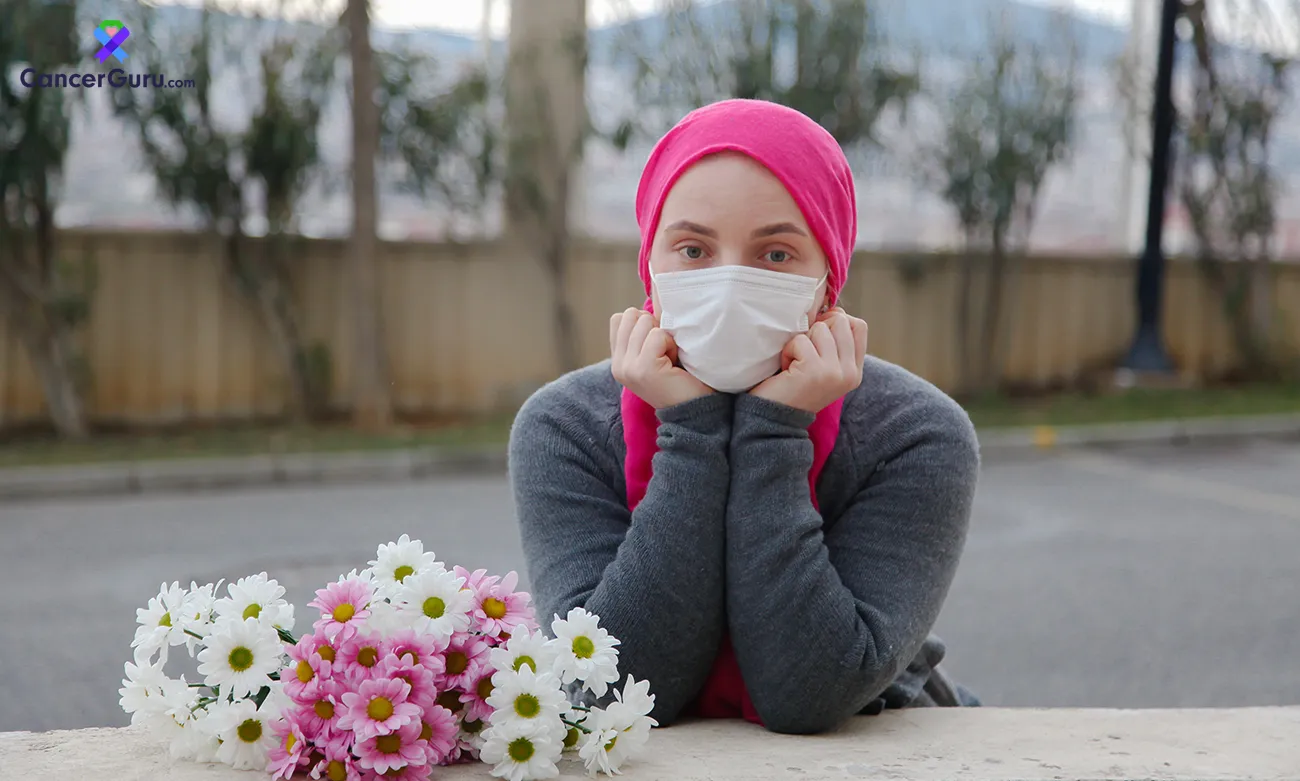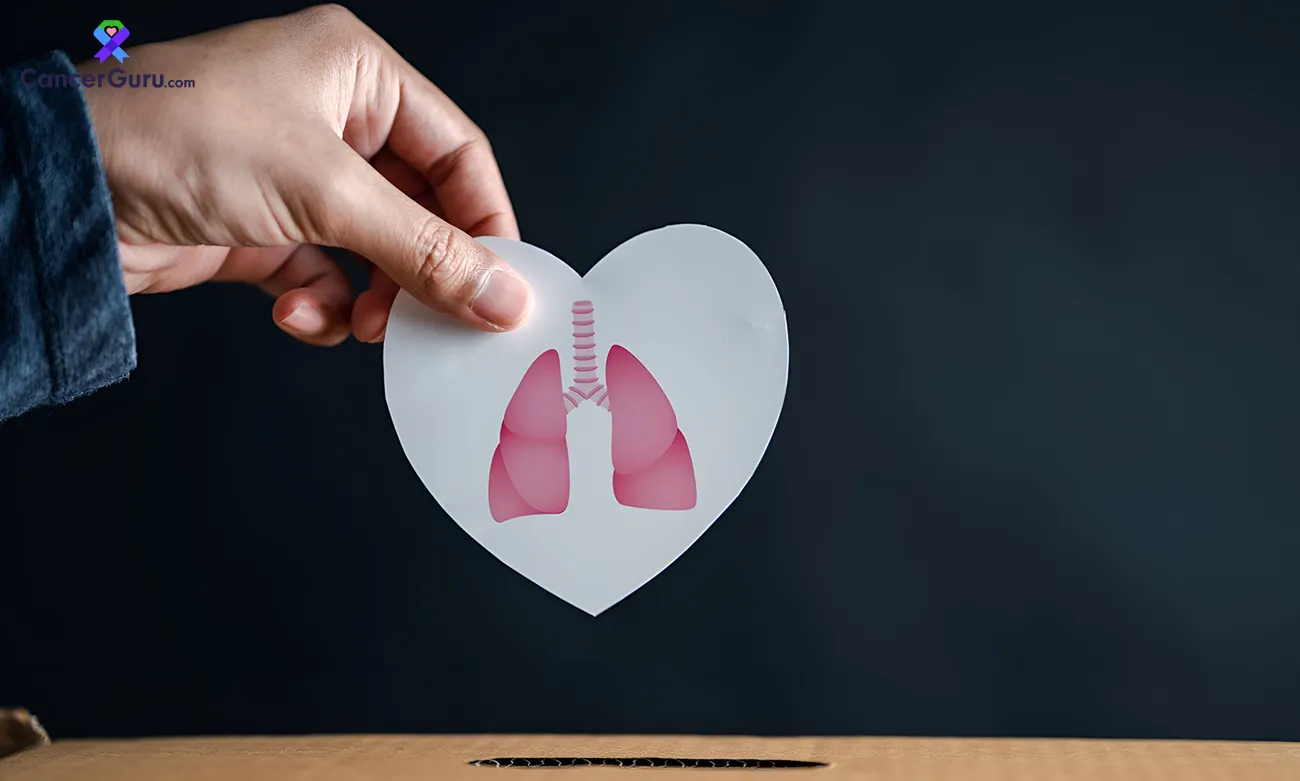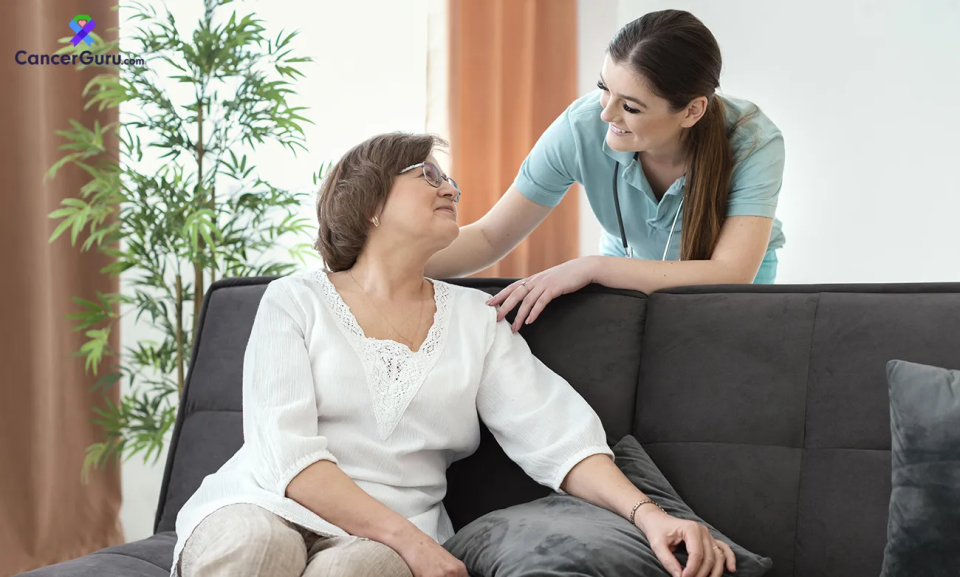- Email: [email protected]
- Contact: +1 (407)581-9000
Essential Care Tips for Patients with Colon Cancer
November 11, 2025

Colon cancer is a disorder that primarily involves the large intestine where precancerous growths called polyps that can be surgically exercised usually play a role in the process. The case will be difficult to manage if a family member receives the information. It is imperative positively to support the patient both physically and emotionally. As a matter of fact, colon cancer treatment includes various methods: surgery, chemo, radiation, targeted therapy, immunotherapy, or sometimes a combination of these. In addition to that, every step of treatment addresses certain physical and emotional issues.
All About Colon Cancer and Its Treatment
Colon cancer is a malignancy that mainly involves the colon and occasionally the rectum, thus directly impacting the lower region of the digestive tract. The disease being diagnosed at an early stage can lead to results that are up to three times better. If the case is the early one, then the removal of the tumor and adjacent tissues would be necessary for treatment. In the case of advanced stages, the doctor will provide palliative care to control the spread of cancer, relieve symptoms, and enhance quality of life.
Caregivers need to get familiar with the treatment regimen of the patient. Knowing the reason for every treatment, the side effects that might happen, and the experience that will come after will help in cutting off fear and confusion. Keeping in touch with the medical staff will make sure that the care decisions are backed by proper information.
Supporting the Patient Emotionally
The notification of a colon cancer patient is likely to provoke fear, sorrow, rage, or misunderstanding. Emotional steadiness of caregivers is a great help for patients.
Emotional support could be provided in the following ways:
- Give an ear to the patient without judging. Do not impose any restrictions on the patient’s expression of worries.
- Show support, but do not treat their feelings as if they were nothing serious.
- Do not hurry. Changes in moods can be often observed.
- Be there with them during the consultations if the patient wants company.
- Advocate for group therapy. Other people in the same situation talking to you can be very beneficial in getting rid of the feeling of solitude.
Patient's keeping a routine is beneficial. Little done, like the patient’s hobbies or just having casual conversations, can be a great source of comfort.
Nutritional Support and Dietary Considerations
Nutrition is a very important and decisive factor that has a strong impact on therapy. There are some patients whose whole treatment may be accompanied by side effects like stomach problems, loss of appetite, nausea, or even the whole cycle of constipation and diarrhea.
General dietary rules:
- Fiber intake should be increased slowly, especially after surgery. Digestive health gets the support of whole grains, fruits, vegetables, and legumes.
- Water should be taken in sufficient amounts to counteract the effects of the changes in the bowel and thus prevent dehydration.
- To support the process of healing, proteins that are low in fat such as fish, poultry, tofu, and beans should be eaten.
- Cut down on the consumption of highly processed foods and refined sugars where possible.
- Try to reduce alcohol intake as it might cause irritation to the digestive system and have an unwanted interaction with medications.
The patient may sometimes have a visit to a registered dietitian who will be able to assist in the development of a personalized meal plan. When the appetite is not too good, keeping small, frequent meals can be of help. Nutritional supplements may be advised if it becomes hard to keep the same weight.
Promoting Physical Movement
During the treatment process, the activity level of patients changes. Light exercise is able to contribute to the improvement of blood flow, energy, and mental state. Methods like breathing, stretching, and taking a few minutes’ walk daily can be good for you. In case of very challenging physical activities, please wait for your physician's okay first.
The objective is to keep practicing but not at full force. Every movement at a slow pace still adds up to the total of comfort experienced.
Making a Home Comfortable for You
The house must be a place where one feels secure, relaxed, and can move around easily.
Some suggestions are as follows:
- Items that are used the most should always be within easy reach.
- Pathways should be kept open to minimize the risk of falling.
- Seating facilities with support should be made available.
- The atmosphere should be clean and quiet.
- Natural light and fresh air should come in during the day if it is possible.
Besides, putting personal things like objects, music, books, or pictures in the environment can bring about huge emotional advantages.
Supporting Medical Care and Appointments
In the activity of a caregiver, he/she can be responsible for various aspects like managing medications, supervising appointments, helping in filling medical forms, and even driving to appointments. If a notebook or a digital planner is used to keep track of symptoms, questions, and treatment updates, then the involvement of different parties will be simpler.
An appointment with the doctor can make the patient anxious, however, the presence of a person will help to ease the anxiety and also to ensure that the patient comprehends what is being said. There are, however, patients who prefer to have their own privacy. Their choice must be honored.
Balancing Independence and Support
Giving care does not mean taking over the whole patient’s life. Patients often want to be the ones who decide about their lives and they want to have the power through their daily routines and habits.
You can respect independence by:
- Requesting first before helping.
- Inviting to participate in decision-making.
- Knowing the patient’s limits.
- Giving them time when they need to be alone.
Support is received better when it is designed to boost the patient's confidence instead of putting control over him/her.
Long-Term Care Considerations
There are some patients who continue to receive care for many months or even years. The objectives of treatment may alter as time goes on. When a patient is in the survivorship phase or long-term symptom management, care might include:
- Being alert to ongoing symptoms.
- Helping with regular follow-up visits.
- Promoting healthy lifestyle habits.
- Making adjustments to the physical changes that come with surgery.
If the disease gets worse, then palliative or hospice care options may be there to provide comfort and quality of life support. Nevertheless, these services are not meant to be a sign of giving up on one’s hope; rather, they are the ones that concentrate on the patient’s dignity and comfort.
Conclusion
Taking care of a colon cancer patient is a job that requires compassion, patience, and knowledgeable support. Every step of the way, medical personnel take care of the patient's treatment while caregivers ensure the patient receives the best and the most comfort and emotional support. By being understanding, assisting with diet and symptom control, and keeping the communication lines open, the caregivers play a very important role in giving the patient the feeling of strength and dignity.
No two patients are alike. Support should vary according to individual preferences and strengths and should be respectful. Patients have the right to suffer through treatment quietly and with the confidence that they are not abandoned if a good doctor and a kind nurse accompany them.
FAQs About Care Tips for Patients Suffering from Colon Cancer
1. What types of food should Colon cancer patients avoid?
Patients may be advised to limit their intake of supermarket and fast foods, fried foods, red and processed meats and those that may cause digestive discomfort. There are universal dietary recommendations for each patient.
2. Is chemotherapy always the case for colon cancer?
Not in every situation. The decision about the treatment will be based on the development of the disease, size of the tumor, and patient’s health condition. Some might only need surgery, while others might have different treatment methods applied to them.
3. Are colon cancer patients permitted to work out?
Patients with colon cancer can do workouts and exercising gently is usually suggested. But the activity should depend on the patient’s comfort and doctor’s consultation.
4. What are the factors leading to colon cancer?
The primary reason for colon cancer occurring is the formation of polyps within the colon's lining. The listed factors include but are not limited to age, family history of cancer, low-fibre diet, consumption of processed meats, obesity, smoking and some inherited genetic disorders.
5. What are the methods for diagnosing colon cancer?
Diagnosis can involve various techniques such as the usage of a colonoscope, imaging tests, biopsy, and blood tests. It will be determined by the doctor which proper screening tests to use based on the patient's symptoms and risk factors.
Ratings and reviews
-
No comment (13 Nov 2025)










